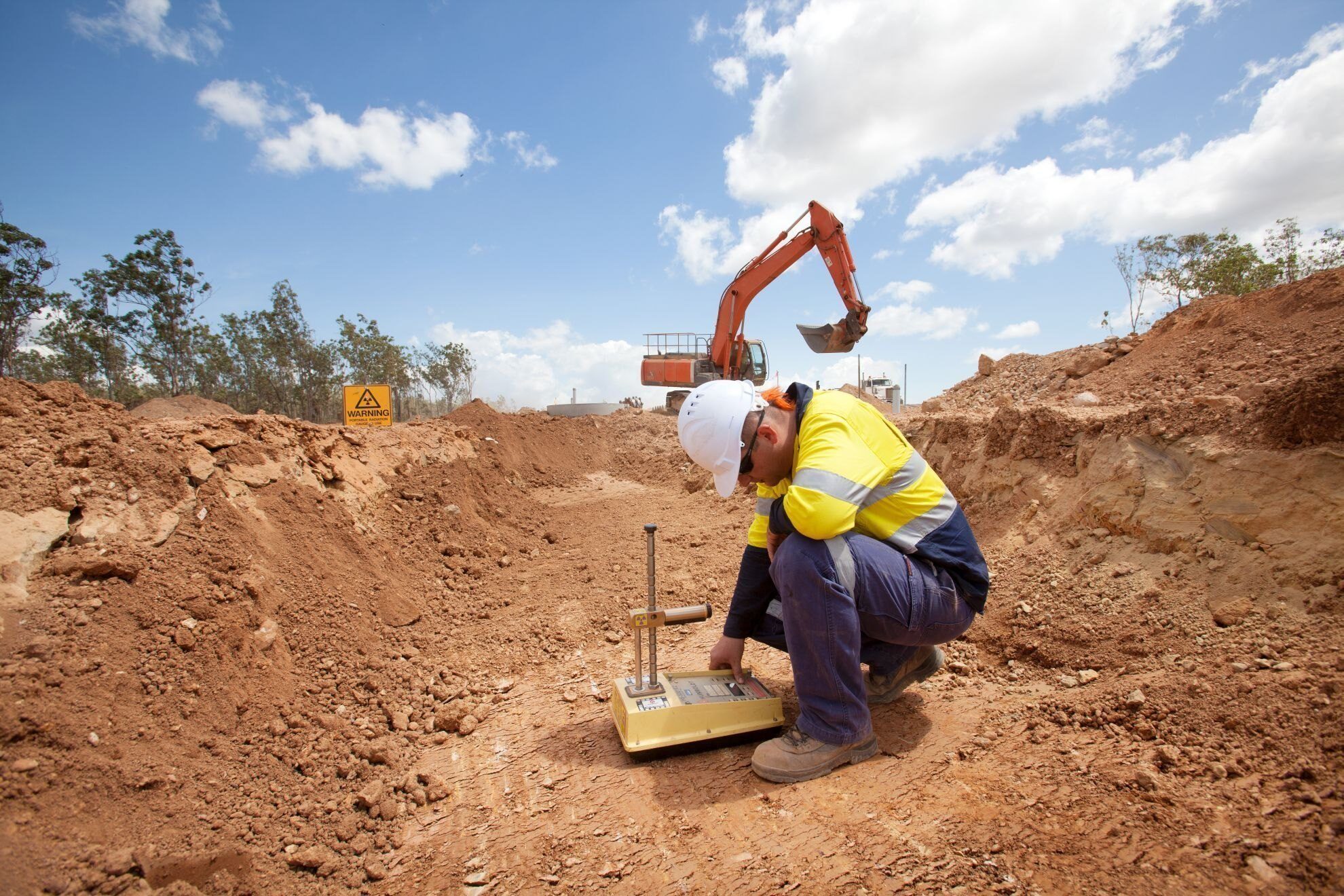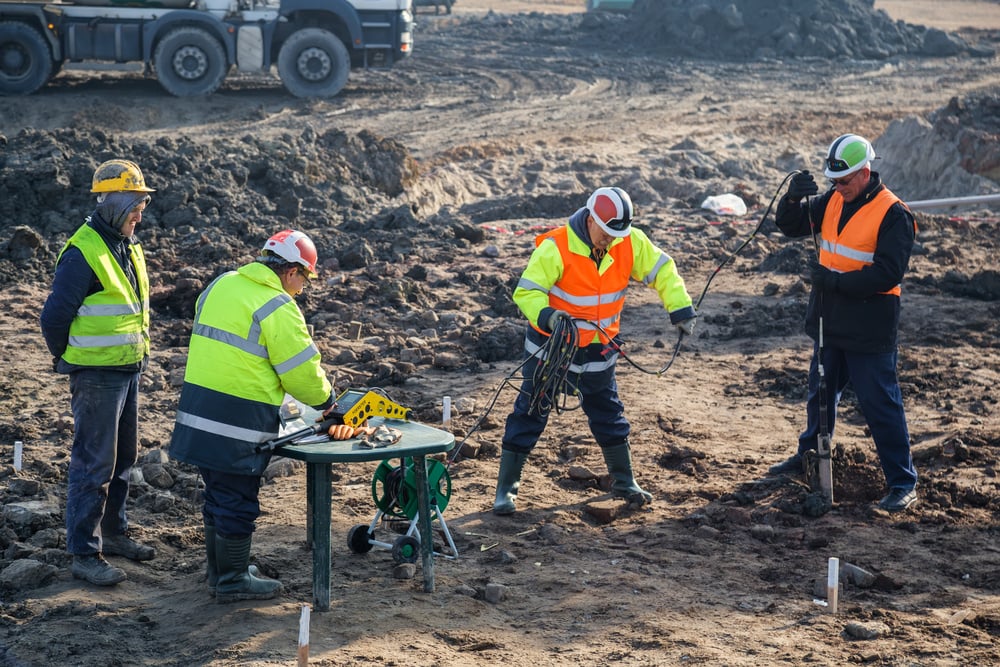Examine This Report about Specialized Geotechnical Engineering Solutions
The smart Trick of Specialized Geotechnical Engineering Solutions That Nobody is Discussing
Table of ContentsNot known Facts About Specialized Geotechnical Engineering SolutionsThe 5-Minute Rule for Specialized Geotechnical Engineering SolutionsHow Specialized Geotechnical Engineering Solutions can Save You Time, Stress, and Money.Facts About Specialized Geotechnical Engineering Solutions Uncovered
They carry out site examinations, accumulate samples, execute laboratory tests, and examine data to examine the viability of the ground for building and construction projects. Based upon their searchings for, geotechnical designers supply suggestions for foundation design, incline stability, keeping frameworks, and reduction of geotechnical threats. They team up with various other specialists, such as engineers, structural designers, and building groups, to make sure that geotechnical factors to consider are integrated into the total project layout and application.
Structure Style: Geotechnical engineers play a vital role in designing foundations that can safely sustain the desired framework. They evaluate the dirt conditions and lots requirements to establish the proper structure kind, such as shallow foundations (e.g., footings), deep foundations (e.g., heaps), or specialized methods like dirt renovation. They consider aspects such as negotiation limitations, bearing capability, and soil-structure communication to create optimal structure layouts.
Specialized Geotechnical Engineering Solutions Fundamentals Explained
Right here are some types of geotechnical engineers: Structure Engineer: Structure designers focus on developing and evaluating foundations for frameworks - Specialized Geotechnical Engineering Solutions. They examine the dirt conditions, lots requirements, and site attributes to establish the most proper foundation type and layout, such as superficial foundations, deep structures, or specialized methods like heap structures
They carry out field screening, gather examples, and assess the collected data to define the dirt buildings, geologic formations, and groundwater conditions at a site. Geotechnical Instrumentation Engineer: Geotechnical instrumentation designers concentrate on surveillance and measuring the actions of dirt, rock, and frameworks. They install and preserve instrumentation systems that check factors such as soil settlement, groundwater levels, slope movements, and architectural variations to analyze efficiency and give very early warnings of possible concerns.
In the workplace setting, geotechnical designers make use of specialized software application devices to perform calculations, create designs, and analyze information. Specialized Geotechnical Engineering Solutions. They prepare records, testimonial task requirements, connect with customers and staff member, and coordinate job activities. The office setup gives a helpful atmosphere for research study, evaluation, and partnership with various other professionals associated with the project
They regularly see task sites to conduct site examinations, analyze geotechnical problems, and gather information for evaluation. These sees involve traveling to different areas, in some cases in remote or difficult terrains. Geotechnical engineers might do soil tasting, conduct examinations, and screen construction tasks to make certain that the geotechnical elements of the task are being applied appropriately.
Getting My Specialized Geotechnical Engineering Solutions To Work
Geotechnical designers also operate in specialized geotechnical labs. In these facilities, they carry out experiments, execute tests on soil and rock examples, and analyze the design buildings of the materials. Geotechnical lab designers function extensively in these atmospheres, taking care of testing equipment, operating tools, and videotaping information. They work together with various other research laboratory staff to guarantee precise and reliable testing outcomes.
Retaining Walls: Producing wall surfaces that hold back soil to stop landslides and give stability on sloped terrains. Embankments and Earthworks: Designing embankments for roads, trains, and dams to guarantee they continue to be secure under stress. The mining industry relies greatly on geotechnical design to ensure the safety and security and long life of its procedures.
With this in mind, we have actually made our program to prepare pupils for success. The Geotechnical Design program at the University of Delaware provides chances for sophisticated study and research in: Dirt and rock technicians Soil-structure interaction Constitutive modeling Computational geomechanics Structure and earth structures engineering Ground enhancement Slope stability and landslide stablizing Liquefaction of dirts and earthquake engineering Lab characterization of geomaterials and dirt reinforcement Environmental geotechnics Offered the solid requirement for improvement to our country's infrastructurethe American Culture of Civil Engineers gave the united state
Geotechnical design is a branch of civil engineering; nonetheless, it entails utilizing scientific approaches and concepts to collect and translate the physical residential or commercial properties of the ground. Geotechnical engineers are included in all stages of the design of frameworks, from principle to building. Their work is essential in the layout and planning procedure as they examine the integrity of dirt, clay, silt, sand, and rock, prior to building and construction beginning.
Specialized Geotechnical Engineering Solutions for Dummies
This is adhered to by a ground examination based upon the searchings for of the workdesk research and involves test matching and tasting to reveal any kind of possible issues. Geotechnical here engineers function within multidisciplinary teams, sustained by intermediate and junior designers along with by CAD specialists. As a senior geotechnical engineer on a hydro plant project, jobs might consist of joining technological testimonials (e.g., peer testimonials), tailings clog assessments, dam safety and security testimonials, and various other research studies connected to the design and building and construction of mine waste centers.
While some specialists are experts entirely in geotechnics, others may function under titles like design geologist or ground engineer within comparable capabilities. As a geotechnical designer, you'll need to: build and keep partnerships with clients and other specialists associated with the site, throughout each projectmaintain safety criteria on website bear in mind price ramifications when you make recommendationsstudy geological maps and aerial pictures from a series of sources and from various time periodsexamine building and construction prepares to see just how practical they are based on your understanding of the siteinvestigate threats or geological dangers for the sitesearch for environmentally delicate functions, such as landfill beginning more information to establish factual and expository ground modelsplan field investigationsdrill and analyse examples of bedrock, soil, groundwater and extra materials supervise various other professionals on sitesolve technological issues as they occur, such as unexpected frameworks at drill sitesmonitor problems during and after building and construction to see to it structures are secure in the short and lengthy termadd information gathered on website to your initial researchcreate geotechnical estimations, drawings, and 2 or three-dimensional computer system designs analyzing the datamake recommendations regarding the proposed use the website.
There are great deals of chances to fulfill new people, as you'll collaborate with a variety of professionals at every site. The job can be demanding as you may be accountable for the safety and security of others while on site. There is likewise a high degree of economic duty, as the recommendations you make can have severe price implications.
